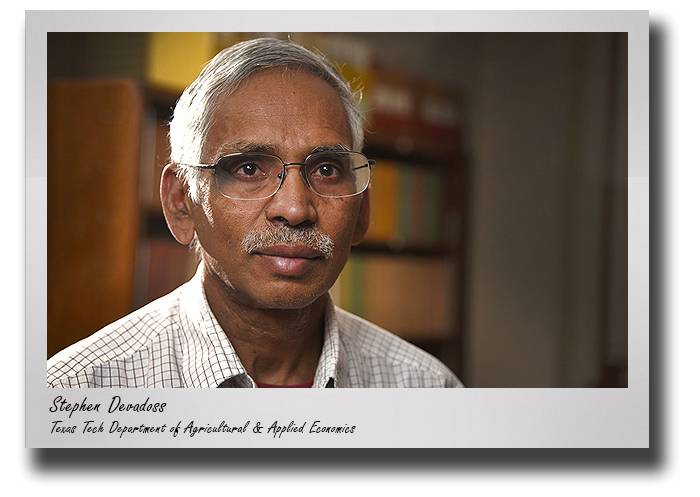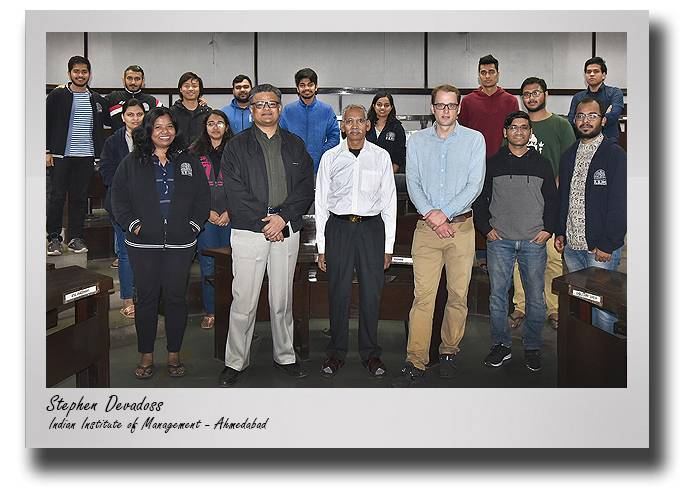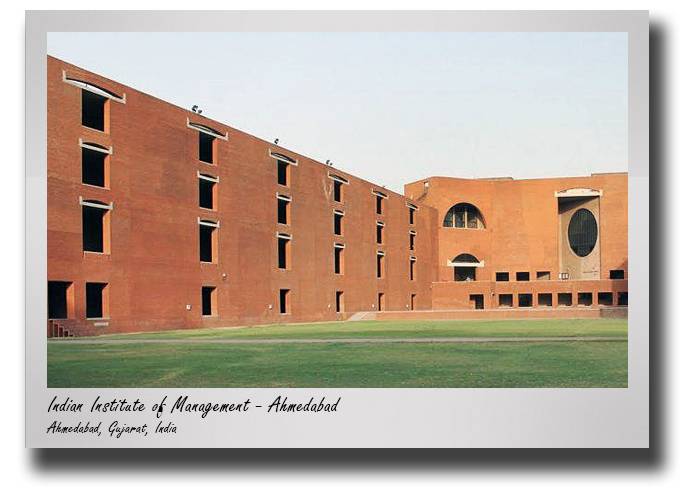AAEC’s Devadoss takes international agricultural trade expertise overseas
By: George Watson
 While most Texas Tech University researchers and educators used their time between
semesters to get away, recharge and spend time during the Christmas holiday with family,
Professor Stephen Devadoss took a different path. That path took him halfway around the world to teach an intense,
three-week course in agricultural and international trade.
While most Texas Tech University researchers and educators used their time between
semesters to get away, recharge and spend time during the Christmas holiday with family,
Professor Stephen Devadoss took a different path. That path took him halfway around the world to teach an intense,
three-week course in agricultural and international trade.
At the request of research collaborators at the Indian Institute of Management in Ahmedabad and with colleague Jeff Lucstead from the University of Arkansas, Devadoss, a professor in Tech's Department of Agricultural and Applied Economics, traveled to India to teach students at the institute several topics related to agricultural trade.

"I have been teaching international trade basically all my life, so my collaborators thought that my background in trade would be a good to share with the students at the Indian Institute of Management in Ahmedabad," Devadoss said. "This was the only time I could go other than in the summer. Also, it had to fit with their class schedule that are different from here. So I was able to go only during our break between semesters."
At Texas Tech, Devadoss, the Emabeth Thompson Endowed Professor, teaches senior- and graduate-level courses in international agricultural trade, international trade and policy, mathematical economics and applied microeconomics. He received the Lifetime Achievement Award from the Southern Agricultural Economics Association in 2019 and is a Fellow of the Western Agricultural Economics Association.
He has published more than 130 referred journal articles and earned 16 research awards, 20 teaching awards and 27 graduate mentoring awards. His expertise fit exactly with what the institute was seeking when asking him to help teach this intensified course in agricultural economics.
Devadoss said the Indian Institute of Management has two Master of Business Administration (MBA) programs; A general MBA where students are typically hired by some of the largest companies in the U.S. like Google, Amazon and Microsoft; and a Food and Agricultural Business Management, where graduates earn jobs with agribusiness firms both within the country and overseas.

"They have some similar courses to what I teach here, but not of this magnitude," Devadoss said. "This is more advanced and more specialized for their students. My expertise meets with that need for these Food and Agricultural Business Management students.
"As I have taught this course for many, many years, some of the faculty members there knew the content of the course and the relevance of the materials, particularly with the current trade war going on. A lot of attention is given to agricultural policies that impact trade, and that's the reason they wanted me to teach there."
Over the three weeks, Devadoss and Lucstead, who earned his master's and doctorate degrees under Devadoss at the University of Idaho and Washington State University, covered basic trade theory, the impacts of various trade policies such as tariffs, import quotas, domestic subsidies, reduction subsidies and the effect of exchange rates. They also covered trade agreements, trade diversion, and trade creation.
"Overall, it was very positive," Devadoss said. "There were about 15 students or so in the class, and they were very receptive to what we taught, the technical aspects, and they learned a lot from the course. They would like us to come and teach it again."
Devadoss said India has a well-established agricultural industry, growing crops such as wheat, rice, legumes and various vegetables as well as fruits such as mangos, bananas and papayas, among others. Coconuts are also produced not only for food but to make coconut oil and coconut flakes, which can be used in cooking.
In terms of animal agriculture, he said India is one of the world's leading milk producers, so the dairy industry is very important to the economy. And with the U.S.-China trade war, Devadoss said it has opened markets for Indian exports.

"With China putting tariffs on some agricultural commodities like cotton and soybeans, that means they're going to import less from the U.S.," Devadoss said. "So that gives opportunities for countries like India and Brazil to export to China to replace some of the lost market by the United States. These are the things we covered in the class because it's a current event and it relates to real-world examples."
Devadoss said the class was also a learning experience for him, and he plans apply some of what was discussed in the class, especially the various policies and trade practices currently affecting India and other countries, to apply to the classes he teaches at Texas Tech.
"Some of our graduate students here are from developing countries, and the class materials will be useful material for them," Devadoss said.
Because the opportunity to teach the class in India came about in a small window, Devadoss is unsure when or if he will be able to return to India to teach the course again. Doing so during the fall and spring semesters at Texas Tech is extremely difficult due to his time obligations and time constraints, and in the summer he spends much of his time conducting research.
But, if the opportunities present themselves, he would love to make this trip a recurring thing as it brings important theories and educational opportunities to real-world scenarios happening in real time to students who will be dealing with these issues in the future. Finding not only the time to make it happen but also the financial backing to teach overseas will be a challenge, and that challenge extends to bringing students to the U.S. to learn as well.
Devadoss said one solution could be to offer it as an online course in order to save the expense and time of travel. He would like to find a way to continue teaching this course in any way possible.
"They cover airfare and accommodations," Devadoss said. "To make this is an extended collaboration, we can discuss with Texas Tech and the Indian Institute of Management and have a very well-established goal so that we can continue this collaboration on a regular basis."
CONTACT: Stephen Devadoss, Professor and Emabeth Thompson Endowed Professor, Department of Agricultural and Applied Economics, Texas Tech University at (806) 834-6260 or stephen.devadoss@ttu.edu
0131NM20
Davis College NewsCenter
-
Address
P.O. Box 42123, Lubbock, Texas 79409-2123, Dean's Office Location:Goddard Building, Room 108 -
Phone
(806)742-2808 -
Email
kris.allen@ttu.edu
